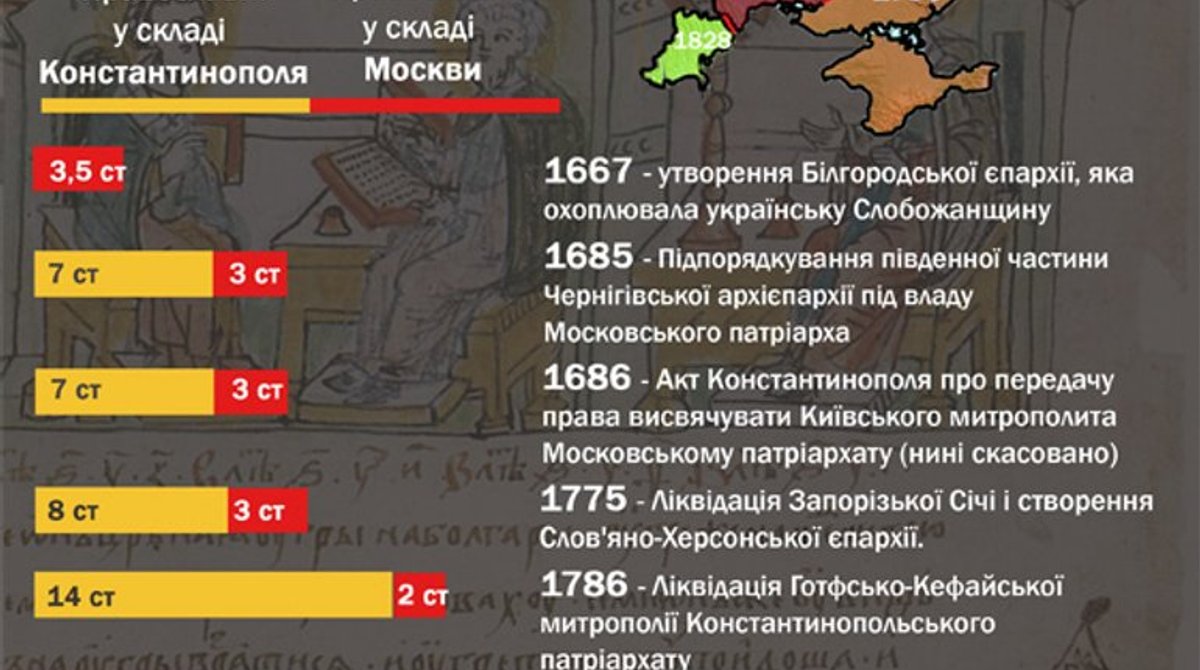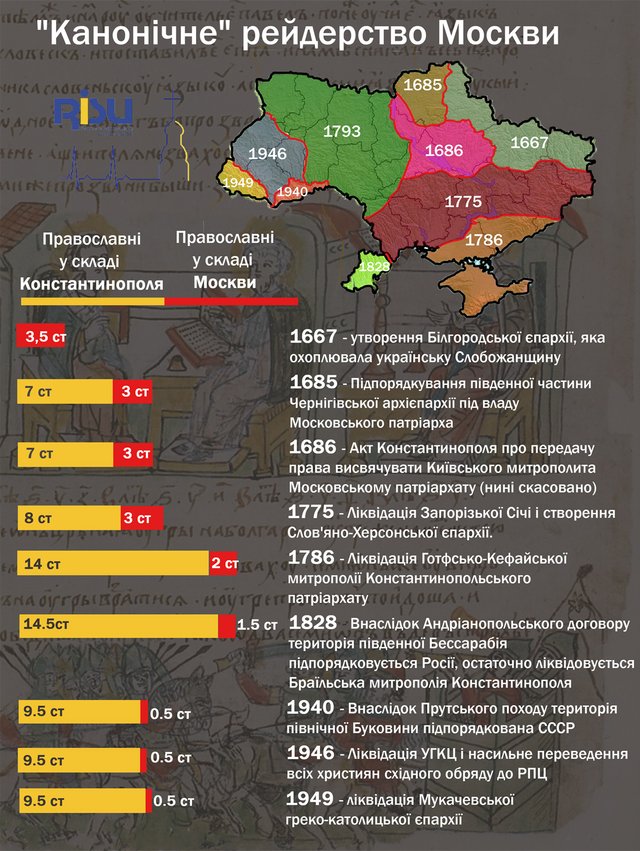

In the context of recent events in the Orthodox world, disputes over the boundaries of church institutions often arise between the Patriarchate of Constantinople, Kyiv and Moscow. Ukraine accuses Russia of misappropriating the territory of the Kyiv Metropolis.
In the context of recent events in the Orthodox world, disputes over the boundaries of church institutions often arise between the Patriarchate of Constantinople, Kyiv and Moscow. Ukraine accuses Russia of misappropriating the territory of the Kyiv Metropolis. In its turn, Moscow appeals to the fact that the ancient Kyiv Metropolis differs from the territory of modern Ukraine. RISU decided to clarify this topic, getting advice from historians.

The history of the Orthodox Church in certain areas of modern Ukraine begins with the era of the Ecumenical Councils. In particular, in Crimea and in Southern Bessarabia, Eastern Christianity dates back to the 3rd – 4th centuries. AD. The church center from which Christianity spread to the Ukrainian lands was Constantinople.
In the 10th century, the Kyiv Metropolis appeared. It exists as part of the Patriarchate of Constantinople until 1686, when the right to ordain the Metropolitan of Kyiv was temporarily transferred to the Moscow Patriarch. In practice, this de facto led to the transition from the jurisdiction of Constantinople to Moscow. By the decision of the Synod of the Ecumenical Patriarchate of October 15, 2018, this act was repealed. However, the Kyiv Metropolis in the 17th century did not cover the entire territory of Ukraine and a significant part of the territory was outside the jurisdiction of Moscow.
The real power of the Russian Orthodox Church over Volyn, Podillia and Right-Bank Ukraine began only with the liquidation of the Rzeczpospolita and after the inclusion of these territories into the Russian Empire.
Central and Southern Ukraine became part of the Russian Church only with the liquidation of the Zaporizhia Sich and the formation of a new church entity – the Slavic-Kherson diocese. The territory of Crimea and the Northern Black Sea almost to the end of the 18th century was part of the Patriarchate of Constantinople. It was only in 1786, after the death of Metropolitan Ignatius, who was a Crimean Greek, that the Synodal Church seized these territories.
After the conquest of Southern Bessarabia by the Russian Empire, this territory was subordinated to the Russian Church, and as a result, several years later, the Metropolia of Braila of the Patriarchate of Constantinople was virtually eliminated. It had previously operated in these territories for several centuries.
In 1940, as a result of the Prut campaign, the USSR urged the Romanian Kingdom to give up Northern Bukovyna, and this territory became part of the Russian Church, although in the past it was part of the Kyiv Metropolis, the Karlovtsy Autocephalous Church and the Romanian Orthodox Church.
After the Molotov-Ribbentrop Pact of 1939 and the division of the Second Polish-Lithuanian Commonwealth, the territory of Western Ukraine falls under the authority of the USSR. The Moscow Patriarchate extends its jurisdiction to the newly acquired territories. In 1946, the Soviet government initiates a so-called Council of Lviv, which resulted in forcible transfer of the Greek Catholics under the jurisdiction of the Russian Orthodox Church.
In Transcarpathian region, the Greek Catholic diocese was fully destroyed in 1949. Although previously, the territory of the region was canonically part of the Patriarchate of Constantinople, the Serbian and Czechoslovak Churches.
So, the territory of modern Ukraine has historically been under the jurisdiction of the Patriarchate of Constantinople (and separate territories in other churches), but later with the arrival of the Russian army and the establishment of the political power of Moscow or St. Petersburg, the seizure of church lands and their transfer from the authority of other Local Churches to the Russian Orthodox Church proceeded simultaneously.